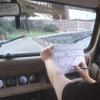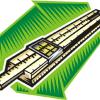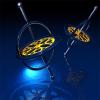Search Results
Showing results 1 to 20 of 27

Scale Model of Sun and Earth
Source Institutions
In this activity, learners explore the relative size of the Sun and Earth as well as the distance between them.

Exploring Size: Memory Game
Source Institutions
In this activity, learners play a card game that explores different size scales--macro, micro and nano.

Highway Seismograph
Source Institutions
This is an activity that models the operation of a seismograph, a tool used to measure the size of earthquakes.

Earth Walk
Source Institutions
In this hands-on and feet-on excursion, learners take a science walk to visualize the planet's immense size and numerous structures, without the usual scale and ratio dimensions found in most textbook
Dowels and Rubber Bands I
Source Institutions
If you have 3-foot dowels and rubber bands, you can can started on this fun and open design challenge. You can make structures big and small: make it so you can fit your parent into it!

Make a Model of a Home Made From Shipping Containers
Source Institutions
In this activity, learners watch a video to learn about a couple who built a home out of shipping containers in Brooklyn, New York.

Exploring Size: Powers of Ten
Source Institutions
In this activity, learners play a card game that explores the relative sizes of various objects. Learners compete to organize their hand of cards into lists of objects from largest to smallest.
Sea State: Forecast Conditions at Sea
Source Institutions
In this oceanography and data collection activity, learners cast real time sea state conditions using buoys from NOAA's National Data Buoy Center.

Perspectives: Powers of 10
Source Institutions
In this activity, learners complete a series of drawing activities to explore scale and powers of 10. Learners first trace each other on 1-meter-square pieces of paper.

Paper Cutting
Source Institutions
In this activity about scale, learners investigate the world of the very small by cutting a 28 centimeter strip of paper in half as many times as they can.

The Thousand-Yard Model
Source Institutions
This is a classic exercise for visualizing the scale of the Solar System.

Pocket Solar System: Make a Scale Model
Source Institutions
This fun and simple hands-on astronomy activity lets learners build a scale model of the universe with little more than adding machine tape.

Slide Rules
Source Institutions
Learners make their own simple slide rules out of paper and learn how they work.

Size Wheel
Source Institutions
In this fun sticker activity, learners will create a size wheel with images of objects of different size, from macroscopic scale (like an ant) to nanoscale (like DNA).

Exploring Size: Measure Yourself
Source Institutions
In this activity, learners mark their height on a height chart and discover how tall they are in nanometers.

Hovercraft Racers!
Learners build a simple hovercraft using air from a balloon to levitate a craft made from a compact disc (CD).

Cutting it Down to Nano
Source Institutions
This simple activity uses paper and scissors to convey two key concepts to learners: the nanoscale is very small and working on the nanoscale requires special tools.

Super Spinners
Learners build at least two different spinners (tops) to investigate how mass distribution, size, and shape affect the length of time the spinner spins.

Action-Reaction Rocket!
Learners construct a rocket from a balloon propelled along a guide string.

Blow-and-Go Parachute
Learners make a skydiver and parachute contraption and launch it. They see that the drag created by air resistance slows the descent of skydivers as they travel back to Earth.
